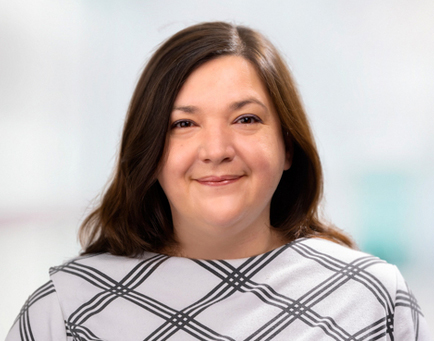
Dr Eirini Trompouki is joining the IRCAN (Institute for Research on Cancer & Aging, Nice) as a new PI. Previously group leader at the Max Planck Institute (MPI) of Immunobiology and Epigenetics in Freiburg, Germany, she will pursue her research on hematopoietic stem cell decisions during development and disease in Nice. The Canceropôle welcome her warmly in the region.
I have been interested in the mechanisms and function of inflammatory signaling for a long time. I started working on signaling when I was doing my PhD in the lab of George Mosialos at the University of Athens, where I studied NF-κB signaling and uncovered a new mechanism regulating this pathway.
I then went on to do a postdoc in Leonard Zon’s lab at Boston Children’s Hospital, studying how signaling specificity is achieved in blood. Indeed, specific signaling pathways are targeted to different types of blood cells. We showed that this phenomenon is mediated by ligneage factors that are able to attract specific signaling factors. The projects I developped in Boston allowed me to work on the Zebrafish model and to gain expertise in genome wide analysis.
At that point I started to be interested by the link between developmental signaling pathways and hematopoietic regeneration. I had the chance to establish my own lab at the MPI in Freiburg and developed my independent projects in this research area, focusing on the role of inflammatory signaling in hematopoiesis during development and regeneration after chemotherapy. We uncovered that chromatin rearrangement and transcriptionnal upregulation of transposable elements are used as signals for innate immune receptors. This leads to an increase of the inflammatory response, a necessary mechanism to trigger hematopoiesis development and regeneration.
Can you tell us more about your current and future projects?
Inflammatory signaling is required for hematopoietic stem cell (HSC) biology and their mobilisation during development or regeneration, for example after a chemotherapy to treat cancer. The various chemotherapies used in the clinic target different pathways and induce different type of stress in cells. I would like to investigate how the mobilisation of immune sensors can be used after those different type of stress to trigger hematopoiesis: Is the mechanism we described valid in response to different kind of cellular stress? To go in more details, we will test if the response observed after different kinds of chemotherapy -thus after different kind of cellular stress- can be due to unique, stress-specific fingerprints created in the genome.
The perspective is to push the hypothesis further and find a genomic or epigenomic signature that can be used to target leukemia stem cells specifically and even distinguish between the different type of leukemias. Additionally, the identification of a common signature induced by stress specifically in leukemic stem cells could then be used to engineer a system to target all types of leukemia cells together.
In parallel, I also develop a project using Zebrafish to investigate how changes in the expression of transposable elements can affect HSC formation and trigger hematopoiesis.
Which models and techniques do you routinely use?
In the lab we use two complementary animal models: Mice are used to study HSC in adult animals, and Zebrafish are used for studying the mechanisms involved during development. Both models will be set up rapidly at IRCAN. In terms of techniques, we use different kind of basic tools for the Zebrafish experiments (injections, morpholinos) and a range of transgenesis or microscopy methods for our projects. We also do a lot of molecular biology and we specialize in large scale analyses such as ATAC-seq, RNA-seq, or ChIP-seq.
How is your installation in the region going?
Really well so far! I am already working at the institute and setting up the office and lab space. I still have lab members working in Freiburg that should be able to join me in Nice this year, and will hire two more lab members. Thanks to the grants I already obtained (FRM and Labex), I will be able to start working on the lab projects while writing other grant applications.
Our projects and the techniques we are using fit really well in the institute, and I am looking forward to interact with local colleagues sharing the same scientific interests. I am also keen to know more about the research performed in the region, and am very happy to participate to the next Canceropôle Annual Seminar!